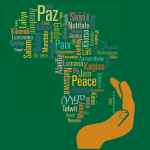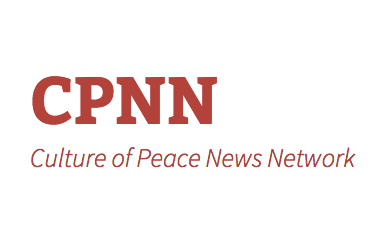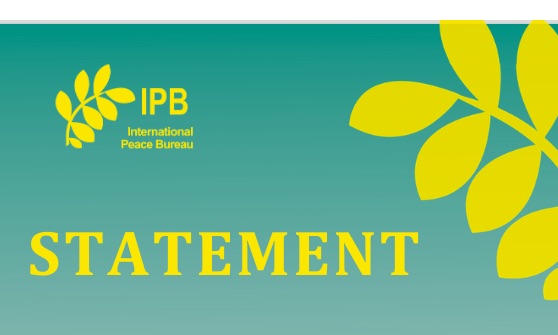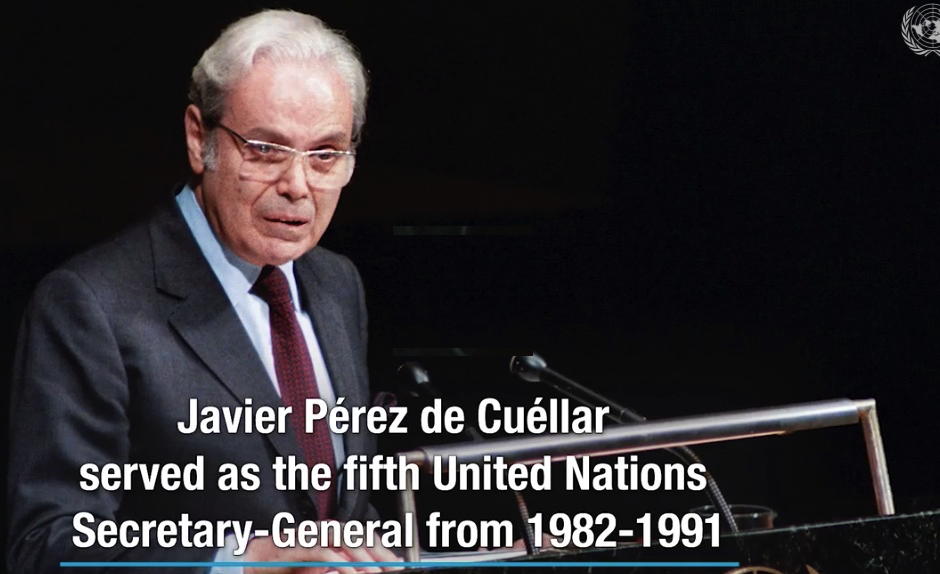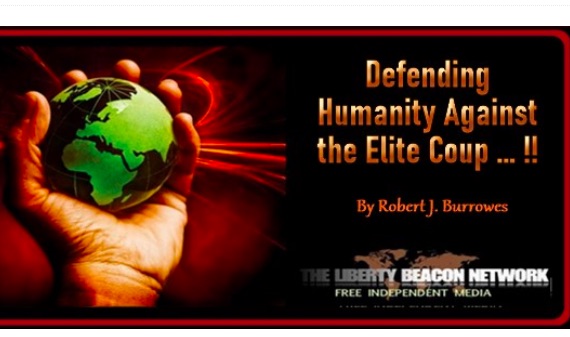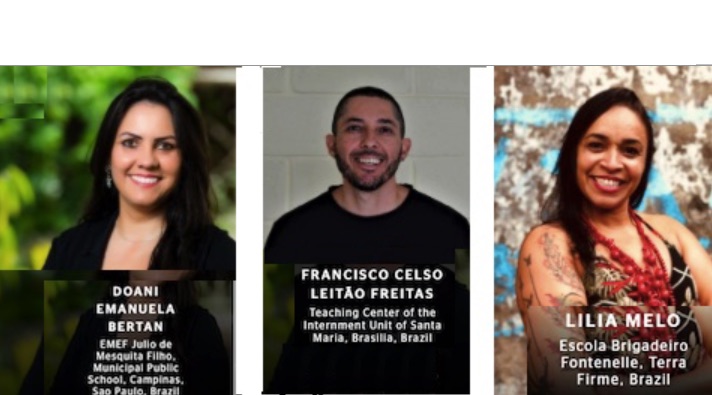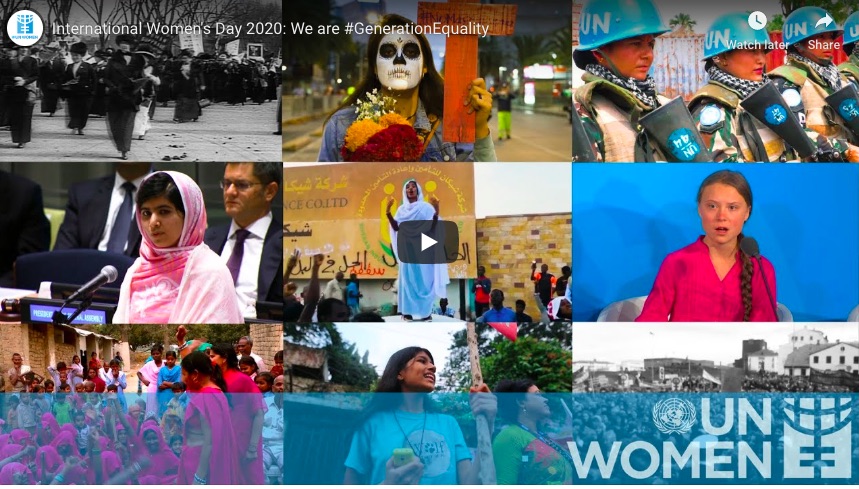Overcoming the Crisis Together
Viewed from the perspective of the culture of peace, the medical and economic crisis associated with the coronavirus can be seen as an opportunity as well as a calamity.
As discussed in the blog Has the crash arrived ?, it may provide us with the opportunity to make the transition from the culture of war to a culture of peace ? The scenario was foreseen In the novella I have seen the promised land written in 2008 which foresaw a global economic crash in the year 2020, opening the possibility for this radical transformation.
Recent articles in CPNN point out how we can overcome the crisis together by working in the various domains of the culture of peace.
DISARMAMENT. The International Peace Bureau has issued a statement demanding world leaders to put disarmament and peace back in the center of policy making. “Without it, we are handicapping our fight against future health pandemics, to eradicate poverty, hunger, to provide education and healthcare for all, as well as the realization of the SDG 2030 goals.”
Similarly the organization Peace Pledge Union says “In this crisis, everyone needs support from others, some especially so. This costs money. The government can still divert funds away from multi-million pound weapons and NATO training exercises. Let’s fund things that will really help to make us safe. You can’t nuke a virus.”
UN General Antonio Guterres has called for ceasefires in the wars that are raging around the world, saying “The fury of the virus illustrates the folly of war. . . . It is time to put armed conflict on lockdown and focus together on the true fight of our lives.”
SOLIDARITY. In this time of suffering and fear, we can learn from the wisdom of indigenous peoples as described in the article coming from the Mixe people of Mexico, a people who have known the ravages of epidemics ever since they were brought to the Americas from Europe. “The communal care that saved the life of [my grandmother Luisa] made it possible that I can today share the dying words of my great-grandfather during a previous epidemic: the individual good is the collective good.”
Cuba has shown us a good example of solidarity in the face of the global pandemic. “The same humanitarian and internationalist spirit that led Cuba to allow the [infected cruise ship] Braemar to dock has also led the tiny country to send doctors to assist Haiti after that nation’s devastating 2010 earthquake, fight Ebola in West Africa in 2014, and, most recently, help Italy’s overwhelmed health system amid the coronavirus pandemic.”
EQUALITY OF WOMEN. The women of Mexico are giving us a good example of solidarity which can serve as a model for future mobilizations. Echoing the cry, ‘A day without us’, millions of Mexicans participated March 9 in a National Women’s strike sparked by the wave of outrage over femicides and expanded to a long list of demands of the feminist agenda. The strike was organized to follow by one day the annual mobilization for International Women’s Day which was celebrated around the world.
DEMOCRATIC PARTICIPATION. As emphasized in the statement of the International Peace Bureau, “We know from the history of our own organization and many of our member organizations that in such crises, democracy must be defended above all else, and it must be defended against increasingly authoritarian states.” During the last great depression, in the 1930’s, democracy was replaced by dictatorships in Germany, Italy and Spain, leading to civil wars and the Second World War. How can this be avoided? Robert J. Burrows, specialist in nonviolent action, provides us with a nonviolent strategy including a list of specific strategic goals “to defend humanity against a political/military coup conducted by the global elite.”
The director of Pace e Bene, a peace organization familiar to CPNN readers because of their extensive mobilizations around the International Day of Peace, tells us that the COVID-19 is a messenger calling us resolutely to join a “planetary movement that is emerging.” The greatest social movement in human history is coming. Each of us is called to join it. It is a global movement, a movement of movements. It is learning from the history of movements that has been accelerating over the past century. It is rooted in the blood and tears of millions who have spent their lives throughout history clamoring for justice, working for peace, laboring for a world that works for everyone. This movement will not appear by magic. It requires hard work and “acting our way into thinking.” It will be deeply nonviolent—saying No to injustice and Yes to the humanity of all, including the humanity of our opponents.
Yes, it depends on our actions now to determine whether the crisis becomes an opportunity or a disaster. CPNN will continue to publish news of these actions as they develop. Readers are encouraged to please send us reports.
| DISARMAMENT & SECURITY
IPB Statement: Call to the G20 to Invest in Healthcare Instead of Militarization |
FREE FLOW OF INFORMATION
Federico Mayor pays tribute to Javier Pérez de Cuéllar |
HUMAN RIGHTS
International Criminal Court Offers Hope to Afghanistan’s Victims |
DEMOCRATIC PARTICIPATION
Defending Humanity Against the Elite Coup |
| EDUCATION FOR PEACE
“Education Nobel”, Global Teachers’ Prize includes three Brazilian teachers. |
SUSTAINABLE DEVELOPMENT
The Most Successful Air Pollution Treaty You’ve Never Heard Of |
TOLERANCE & SOLIDARITY | WOMEN’S EQUALITY
International Women’s Day 2020 |
